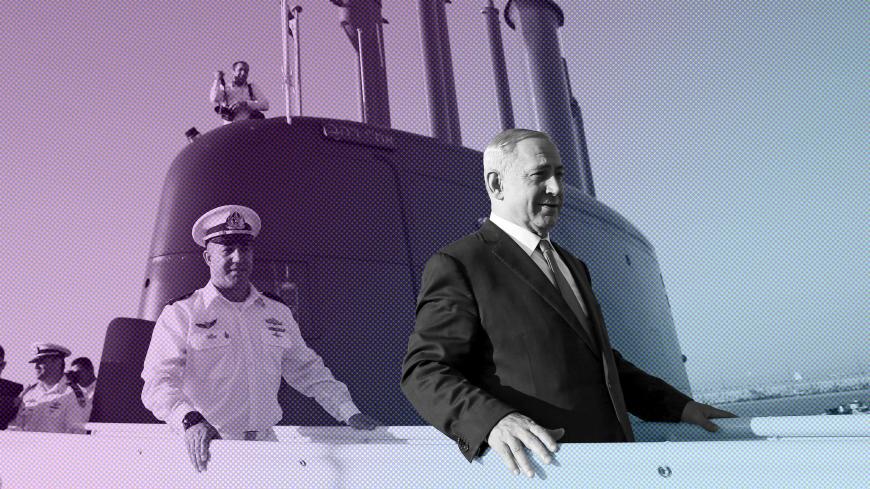ed note–2 important ‘protocols’ which need to be understood in all of this–
1. What General, especially the FREAKING CHIEF OF STAFF, does not want new weapons with which to fight wars?
Answer–NONE.
So, the next question is–
2. WHY was Yaalon SO OPPOSED to this deal?
Likely answer–
‘Saner’ heads within Israel know that Netanyahu–the one who singularly put together the 911 Terrorist attacks against the US in order to get the ‘Clash of Civilizations’ between the Christian West and the Islamic East kicked off–is a nutcase who is going to go too far and get Israel destroyed, just as the Zealots did in 70 AD.
Doubtless that Nutty Netty, driven as he is by his own Messianic religious delusions, has spoken out loud in those ‘frank’ moments about his ‘destiny’ in leading Israel into the Messianic Age which can only take place after Armageddon and the Apocalypse, and in doing so, sounded the alarm on the part of those around him, including his own Defense Minister Yaalon, about what he planned to do once he got his hands on those subs.
Ynet
Germany approved a secret Memorandum of Understanding Thursday night with Israel which will see the latter purchase three more Dolphin submarines, on top of the six already previously acquired, Yedioth Ahronoth has learned.
The MoU underwent several changes in the last week following pressure exerted by senior German officials who sought to create a framework which would enable Germany to easily pull out of the deal in accordance with developments relating to the ongoing investigation into the submarine scandal investigation, also known as Case 3000.
While the final deal may be signed in an official ceremony, the two countries may simply exchange diplomatic communications.
According to the latest version of the MoU, Israel will purchase three more submarines in Germany, in addition to the five that already docked on Israel’s shores and the sixth that is currently being assembled at an overall cost of 2 billion euros.
The German government will be required to transfer half a billion euros to finance the deal.
Prime Minister Benjamin Netanyahu’s desire to see the deal pushed through was stymied by fierce opposition voiced by defense officials when the Defense Ministry was headed by Moshe Ya’alon.
Netanyahu continued to advocate for the deal to be pushed through for another three submarines and for the signing of the MoU that would anchor German support for its implementation.
Under different political circumstances, Netanyahu has argued, Chancellor Merkel may not be in a position to lend the support of her government or offer her signature.
On the other hand, the most vociferous opponent of the deal, Ya’alon, has argued that Israel has no need for three more submarines, and that they should only be purchased a few years down the line when those currently moored in Israel’s naval bases are approaching the end of their operational functionality.
With a major gulf dividing the two, many in the political establishment believe it accounted for Netanyahu’s relatively sudden decision to give Ya’alon the boot in 2016, clearing the way for Avigdor Lieberman to head the Defense Ministry.
Convincing Merkel to climb on board with the deal proved no easy task, and responsibility for nudging her into inking the deal was largely assigned to President Reuven Rivlin.
With the launching of Case 3000, the German government became increasingly skeptical about becoming entangled in any further involvement and announced it was loath to put pen to paper.
For this reason, Merkel’s former advisor, Christoph Heusgen, instructed that the agreement be frozen against Israel’s will in order to enable Germany to consider withdrawing altogether from the deal in the event that it emerged that previous acquisition of the submarines was indeed scandal-ridden.
The MoU was supposed to have been signed by the Israeli ambassador to Germany, Yakov Hadas-Handelsman, but was indefinitely put on the back burner.
Berlin continued to ask that Israel keep it abreast of developments in the investigation, a request that prompted Jerusalem to convene a special forum on the matter under the direction of the Justice Ministry.
The forum concluded that despite the mounting evidence that corruption had sullied the previous deal—which was spearheaded by now-state witness Miki Ganor who worked as an Israeli representative for the submarine manufacturer ThyssenKrupp—’the corruption did not fall on the root of the deal.’
In effect, the conclusion determined that the decision-making process, neither from Germany nor Israel, had been influenced by corruption, thereby convincing Merkel that she could now proceed.
